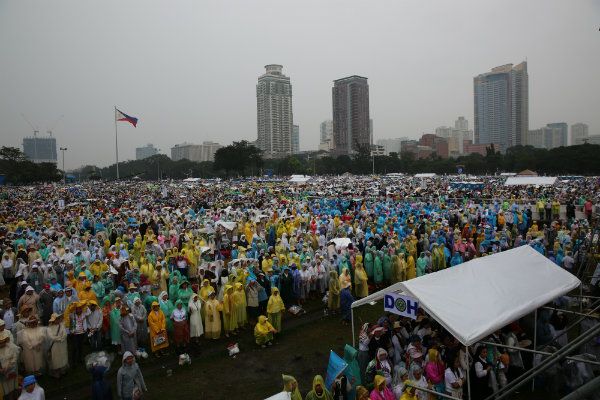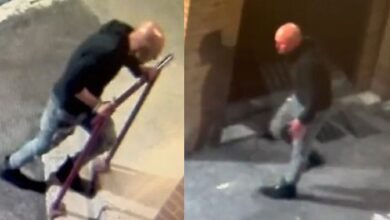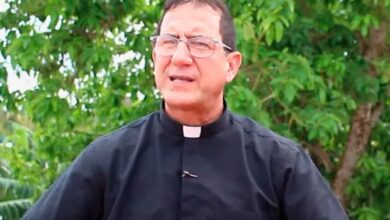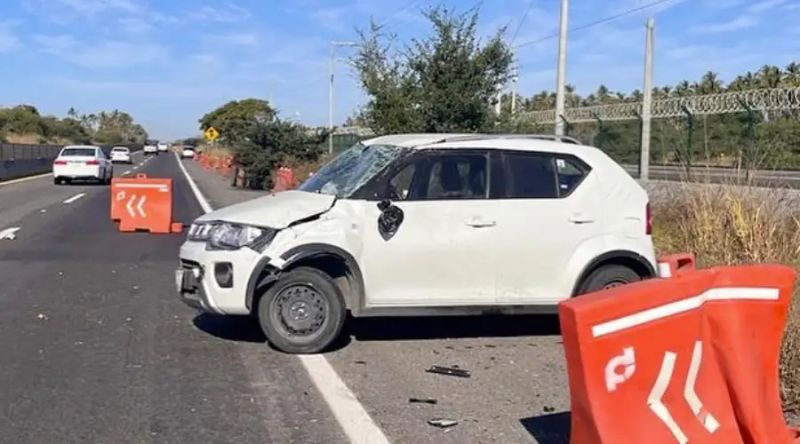Why did four Mexican bishops meet with organized crime bosses?
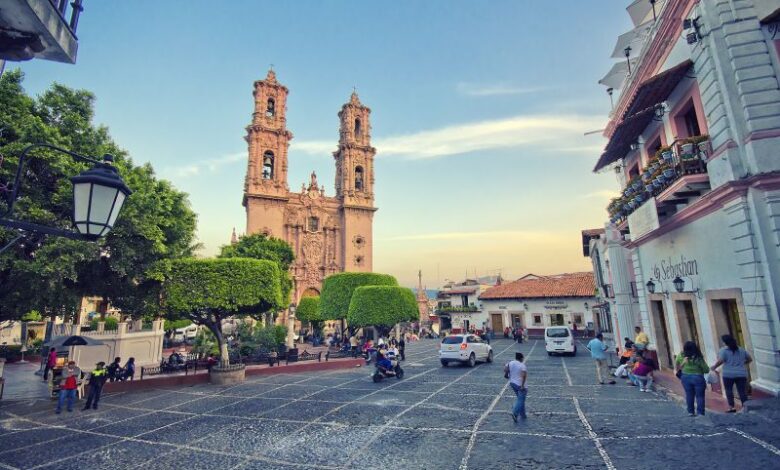
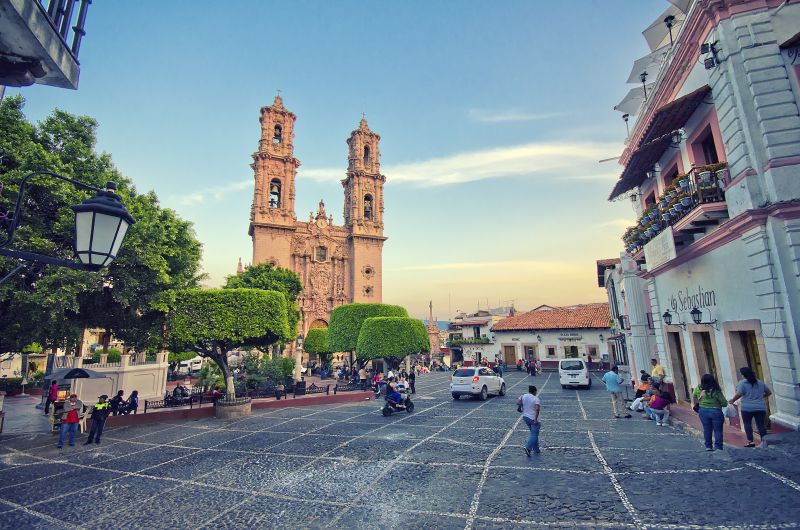 The central plaza in Taxco, a city in the state of Guerrero, Mexico. / Credit: Wikimedia Commons
The central plaza in Taxco, a city in the state of Guerrero, Mexico. / Credit: Wikimedia Commons ACI Prensa Staff, Feb 23, 2024 / 08:00 am (CNA).
Four Catholic bishops recently made media headlines after it was learned that they had met with members of organized crime in the Mexican state of Guerrero.
The bishop of Chilpancingo-Chilapa, José de Jesús González, confirmed at a press conference last week that the prelates of the Ecclesiastical Province of Acapulco “began to seek talks with the [crime] bosses who could bring about peace” in the region. However, he lamented that that goal “was not achieved.”
The other three prelates who participated in the effort were the archbishop of Acapulco, Leopoldo González; the bishop of Tlapa, Dagoberto Sosa; and the bishop of Ciudad Altamirano, Joel Ocampo.
Church ‘cannot remain indifferent’ to suffering
In a Feb. 21 interview with ACI Prensa, CNA’s Spanish-language news partner, Father Mario Ángel Flores Ramos of the Mexican Bishops’ Conference and former rector of the Pontifical University of Mexico, discussed what he considers the two main considerations that led to the bishops’ meeting with the organized crime figures.
Flores pointed out that in the first place, the Catholic Church “cannot remain indifferent to the suffering of the community.” The Mexican priest noted that parish priests, as an active part of society, “are in direct contact with the realities faced by the population, which motivates the Church to seek to overcome conflicts and act as a mediator in crisis situations.”
He also stressed that priests do not have the responsibility of “finding an in-depth solution” but rather the Church tries to get the rival gangs “to reach agreements among themselves so as not to fight and thus prevent the problem from growing.”
The second reason, Flores explained, is the “lack of effective action by the authorities to maintain order” and “combat impunity.”
“Even taking into account that there is a presence of the National Guard, some state or municipal police, there’s no action and even less effectiveness. So there is impunity,” he lamented.
The administration of President Andrés Manuel López Obrador created the National Guard in 2019. It replaced the former Federal Police of Mexico and was given a mandate to “guarantee public safety.”
Flores said that the level of violence in the country exceeds any “sensitivity and respect for human life.” This situation, he noted, “leads the Church to try to make this situation a little less burdensome for everyone.”
Furthermore, the priest highlighted that “religious figures still carry a lot of weight with criminals” and “they retain respect and a certain trust for nuns, priests, and bishops. This, he said, gives the Catholic Church the “ability to be mediators even in intense conflicts.”
Guerrero, a ‘failed state’
Acapulco, the largest and best-known city in Guerrero, has been on the list of the 50 most violent cities in the world in the last two years according to the report compiled by the Citizens Council for Public Security and Criminal Justice. In 2022 the city was ranked 10th, and in 2023 it was ranked 15th.
Various crime gangs such as Los Ardillos, Los Tlacos, Guerreros Unidos, La Familia Michoacana, the Jalisco Nueva Generación Cartel, and the Sierra Cartel are fighting among themselves in turf wars and for the control of drug trafficking routes in the region.
In Guerrero, poppies are grown from which opium and finally heroin are produced. The use of this substance, along with fentanyl and occasionally cocaine, has resulted in a powerful drug known as China White.
According to figures from the Executive Secretariat of the National Public Security System, in 2023, 1,398 first-degree homicides were recorded in Guerrero. Of these, 1,026 were carried out with firearms.
However, according to a security expert, the official figures could be lower than the real ones.
In a statement to ACI Prensa, José Antonio Ortega Sánchez, president of the Citizens Council for Public Security and Criminal Justice, pointed out that “it is very likely that the figures on the incidence of homicides in Mexico are higher.” He contends “there is an operation that can’t be concealed to hide the real figures.”
Ortega also referred to the role of the Catholic Church in addressing violence in Guerrero.
The security expert described Guerrero as “a failed state” where criminal organizations “exercise dominant control.” In addition, he said that the “inaction” of the authorities along with “impunity” are the factors that contribute to violence in the region.
“Given the defenselessness of the people of Guerrero and the power of the criminal organizations, the bishops of the Guerrero region decided to intervene directly, seeking to reach an understanding with the crime leaders to stop the clashes and protect the population,” he said.
The president of the Citizens Council for Public Security and Criminal Justice noted that the business of crime gangs “is not limited only to drug trafficking” but also covers a wide range of criminal activities, “such as collecting protection money, robberies, kidnappings, and extortion.” This situation, he said, “has led the Church to intervene in search of peaceful solutions.”
Ortega stressed that the only thing the Church is asking for is “peace, tranquility, and security for the population, which is the first obligation of the government toward its citizens.”
Not meeting to make a deal
The bishop emeritus of Chilpancingo-Chilapa, Salvador Rangel, who has held similar meetings with members of organized crime, said that the recent meeting of the prelates of Guerrero state was “not an agreement, it was simply talking, dialoguing.”
In a Feb. 16 interview with ACI Prensa, Rangel lamented that “the ones who have won the battle here are the drug traffickers.”
However, he encouraged people not to lose hope and, whatever may happen, to work so that everything turns out for the good of the people: “We mustn’t lose faith and hope,” he said.
This story was first published by ACI Prensa, CNA’s Spanish-language news partner. It has been translated and adapted by CNA.



